How Compassion Works ― with Chronic Pain as an Example
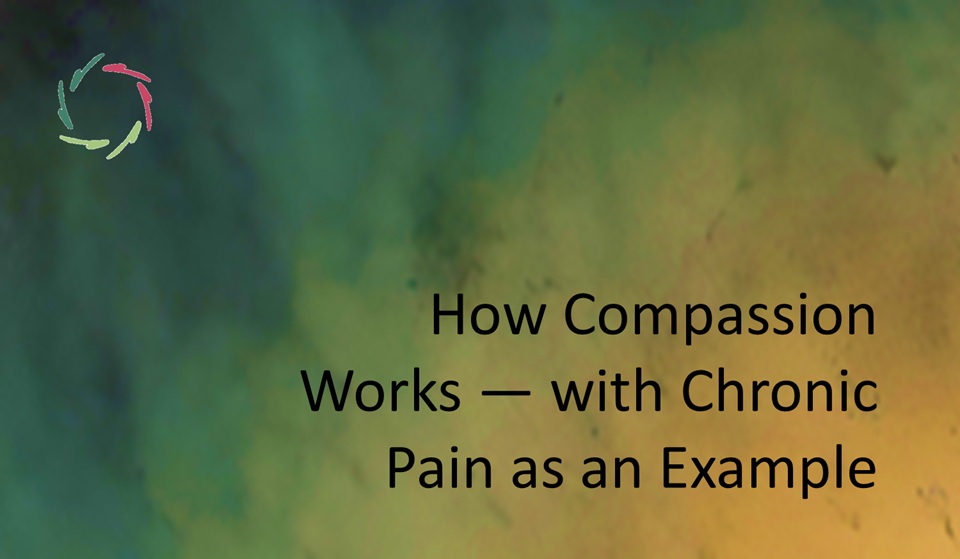
This blog is about how Compassion actually works — how it moves, how it transforms suffering, and how it fosters healing. To make this concrete, we’ll explore it through the lens of chronic pain, a condition where the physical and mental aspects of suffering are deeply intertwined. In a previous blog, “Compassion: Evolutionary or Universal?”, Read the full article…
NSAIDs ― Your Mind and Pain
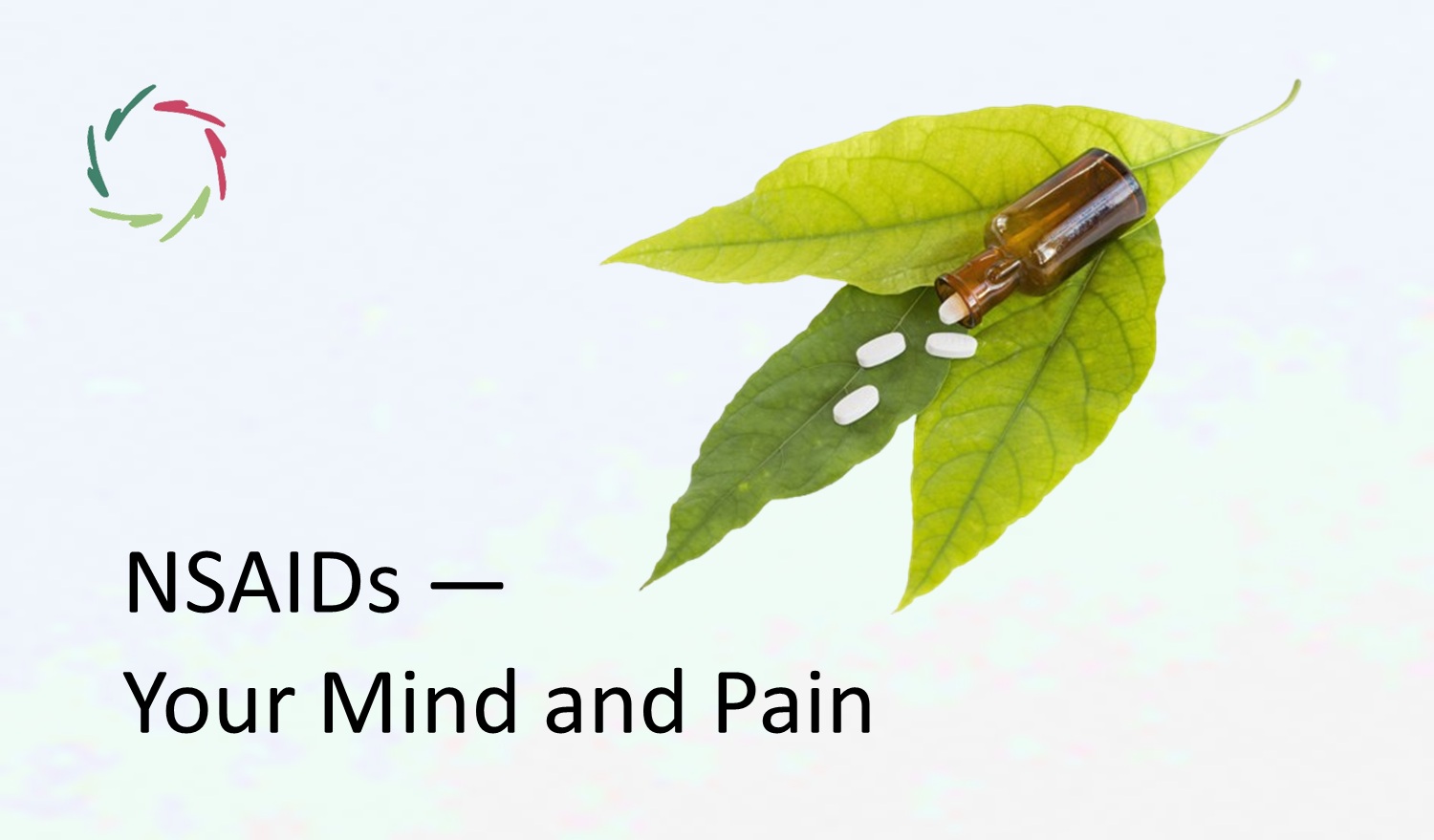
NSAIDs are among the most commonly used tools for pain relief, often taken without a second thought. Yet, what if these medications could serve a purpose beyond merely relieving symptoms? What if NSAIDs could act as keys to deeper understanding, offering not just relief but also an opportunity for growth and self-discovery? Let’s explore how Read the full article…

Lisa’s 10 Tips for… Chronic Pain
Here are ten original tips for rediscovering your creativity that are specifically based on Lisa’s knowledge and deeper insights ― avoiding the common tips that are frequently offered. These tips, provided by A.I. coach-bot Lisa (human ratified, hardly or unedited), Compassionately align with both rationality and depth as well as with a synthesis of fostering growth and Read the full article…

Twelve Principles for Coaching Chronic Pain
These principles guide Lisa’s approach to coaching, ensuring that each session is tailored to the individual’s unique needs while fostering a comprehensive, Compassionate, and empowering healing process. This is also part of a Lisa File on Chronic Pain. Holistic understanding Emphasize the deep connection between mind and body, recognizing that chronic pain often involves both Read the full article…

The Lisa-Take on Chronic Pain
This is the introduction to a Lisa File (40 p.). If you want the whole file, please contact lisa@aurelis.org, stating who you are and why you want the file. For more about the Lisa Files, click here. Chronic pain is an enduring challenge that affects millions of people, intertwining with both their physical and emotional lives. Read the full article…
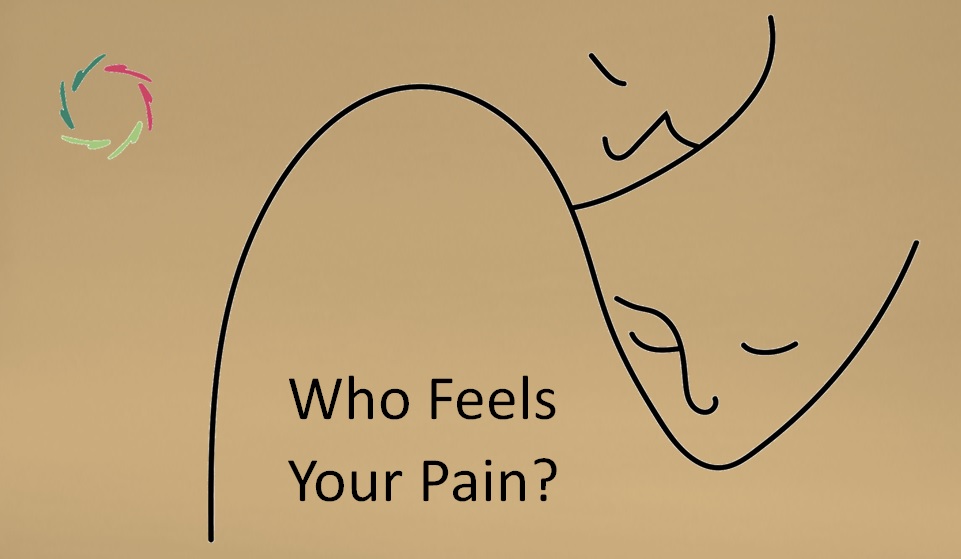
Who Feels Your Pain?
Of course, you feel your pain. But what is this pain if not your feeling itself? So, the feeling (pain) is simultaneously what is being felt (pain). Then, who is the feeler? Please read first about feelers and feelings. Mind = body Any movement of the mind is a movement of the body and vice Read the full article…

How to Give Attention to Your Pain
Crucial in this is not the attention by itself, but its many characteristics. The primary emotion behind pain is frequently the perception of some threat to which the pain mobilizes a reaction. In acute pain, the reaction involves paying attention to the pain while pulling away from the threat. In chronic pain, the threat is Read the full article…

Placebo in Chronic Functional Pain
This is the blogified abstract of a congress talk that I delivered in Montreal several years ago. You find the whole talk as delivered in Montreal at [see: “Placebo as Communication to Neur(on)al Networks in Chronic Functional Pain”] Meaning, expectation, hope, belief… These can be seen as alternative explanations for the placebo effect, as different Read the full article…
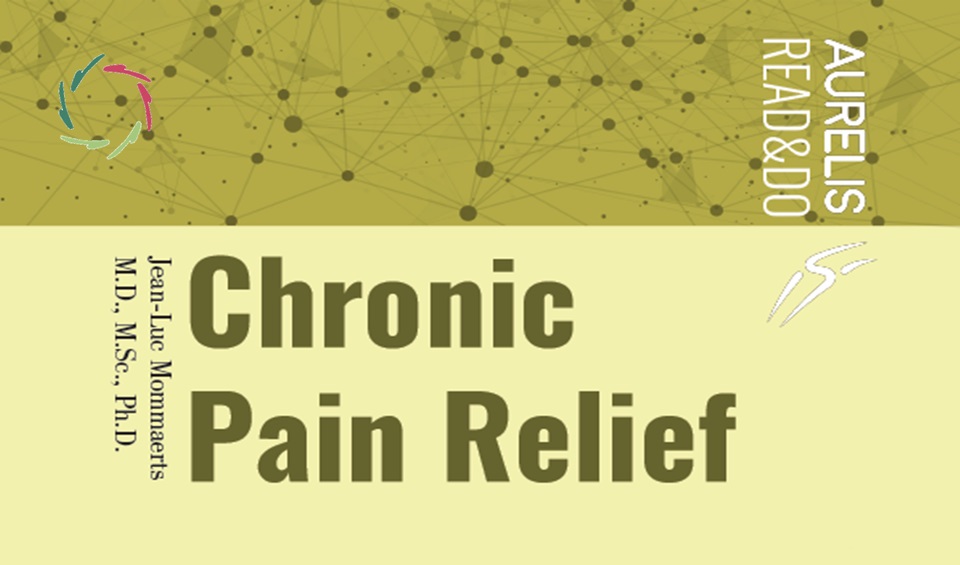
Chronic Pain – Read&Do
This is the foreword to my book ‘Chronic Pain Relief’ that you can find on Amazon (see menu). Economically costly On top of the human suffering, and despite modern painkilling medications and procedures, chronic pain is hugely costly to patients and society. The individual cost is unfathomable. Estimated economic costs are in the many billions Read the full article…
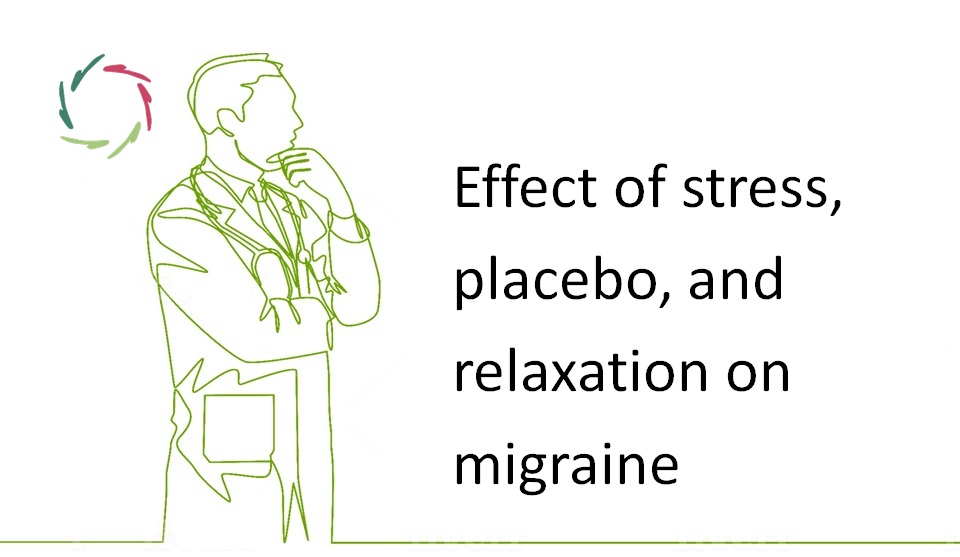
Effect of stress, placebo, and relaxation on migraine
In the preface to the 1970 edition of Migraine [Sacks, 1970], Oliver Sacks says, “Some patients I could help with drugs, and some with the magic of attention and interest… it now became apparent to me that many migraine attacks were drenched in emotional significance.” The comorbidity of migraine and depression is well-known. Patients with Read the full article…
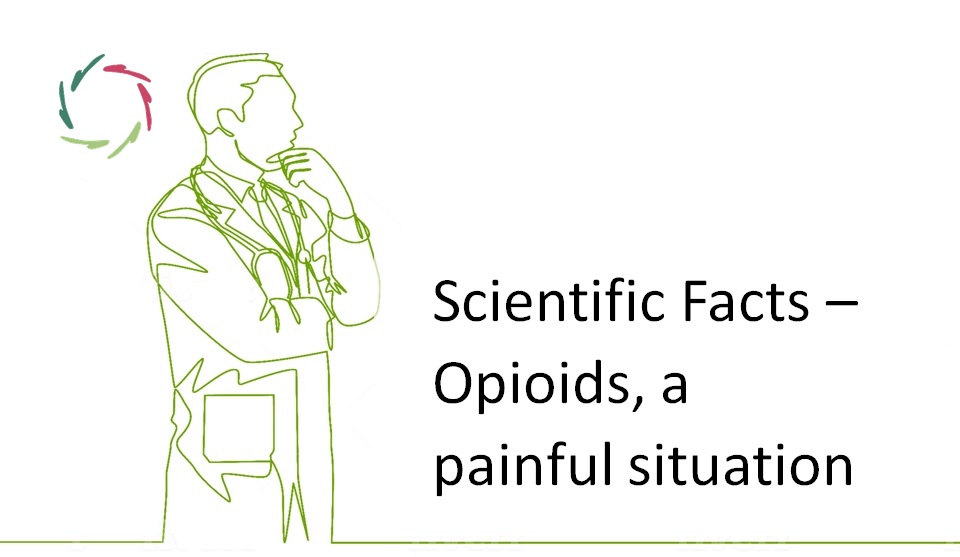
Opioids, a painful situation
One of the chapters in Part 4 of this book is about chronic pain. Also, in 2020, my Read&Do book about chronic pain gets published. Of course, this is not a ‘cure for all.’ From the beginning – when I started my practice as a physician and was being intrigued by the placebo effect – Read the full article…
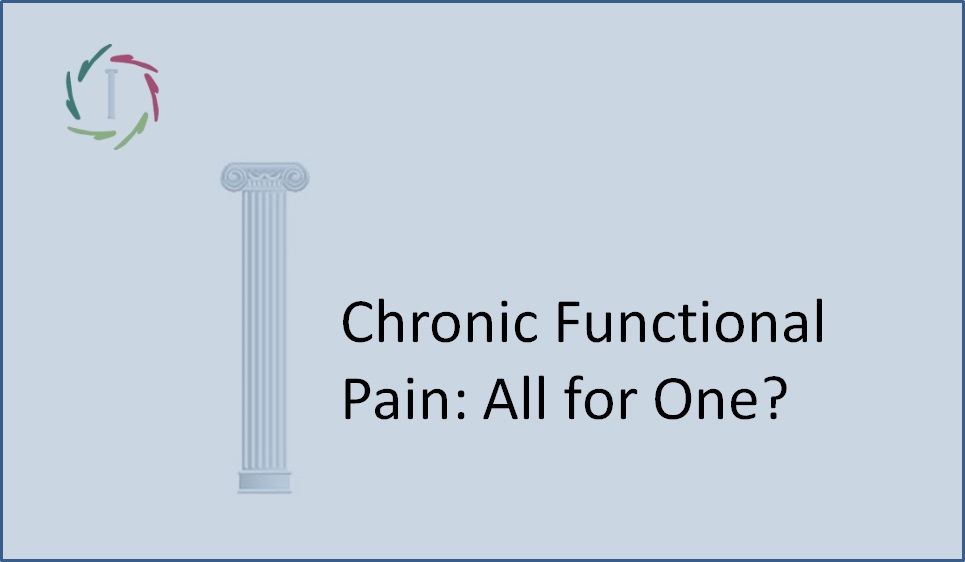
29. Chronic Functional Pain: All for One?
Different functional pain syndromes have more similarities than differences. Chronic functional pain as one syndrome The following quote is from Mayer & Bushnell, editors of ‘Functional Pain Syndromes’, 2009, from their word for this Yearbook, published by the ‘International Association for the Study of Pain’ (possibly the most scientifically renowned Association of the world that Read the full article…
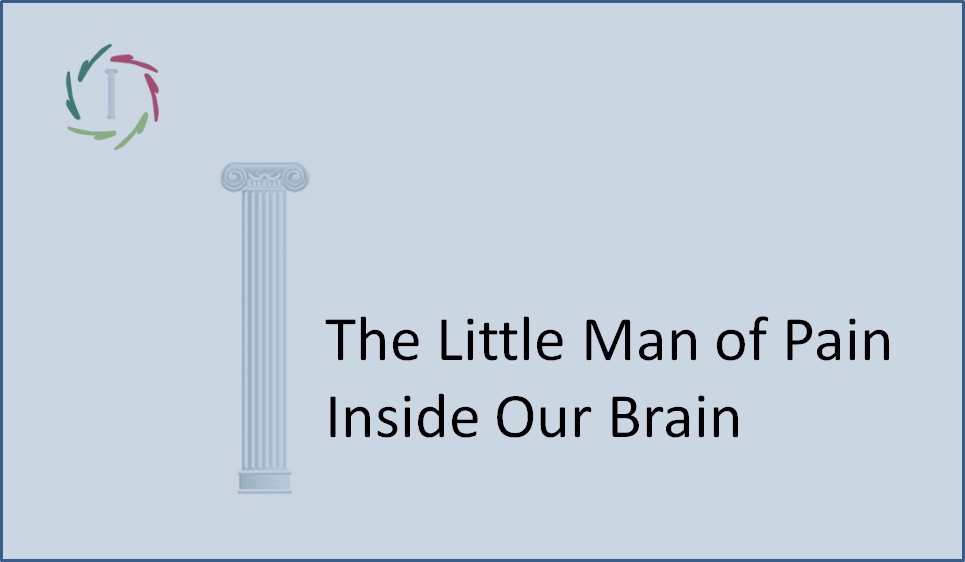
20. The Little Man of Pain Inside Our Brain
Pain Neuromatrix: science, no fiction R.Melzack, Nobel Prize winner on the basis of his Gate Control Theory, has subsequently also developed the Pain Neuromatrix theory. In this theory he locates even more the mechanism that produces pain – so the fact of ‘feeling’ pain – within the brain itself. The Pain Neuromatrix is a distributed Read the full article…

A Taste of Pain
Pain is not always easy to ‘endure’ if you necessarily want to ‘endure’ it. There are only 4 basic tastes (or 5, if you count in ‘unami’) that we can distinguish on the tongue: salty, sour, sweet and bitter. All other flavors that we taste with the tongue are somehow combinations of these 4. Makes Read the full article…

Inside Values, We Find Pain and Joy
In our values, we find our worth and deepest meaning, our ‘energy’ which is no more than deep motivation. Our values are our morality. Valued gain for pain and source of joy. Inner values lead one to voluntarily accept pain. For instance: the soldier fighting for his country, the mother giving birth, the athlete going Read the full article…

How to Take Your Painkiller – Mindfully
The placebo effect of painkillers is high. Moreover, you can enhance it for yourself. Note that a psychological effect is of course as real as any other! The placebo effect of painkillers generally amounts to half the experienced effect. Thus of the diminishment in pain, half is pharmacological, half psychological. This is true for an Read the full article…
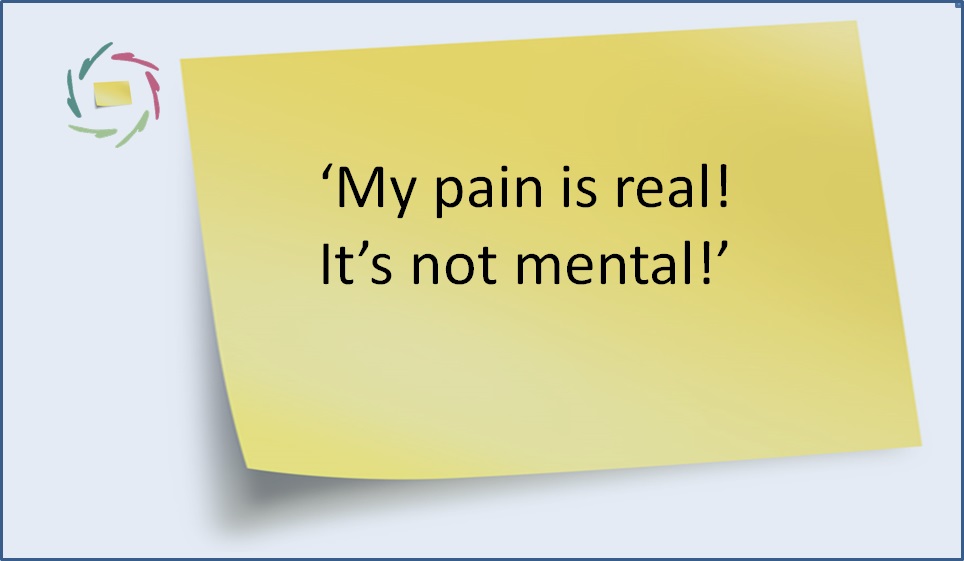
26. ‘My pain is real! It’s not mental!’
The outcry in the title is the result of a way of thinking that, sadly enough, still pervades our culture very much. It is as if what is mental cannot be real at the same time. This seems to be very deeply ingrained, so deep that many people don’t even question it at any time Read the full article…
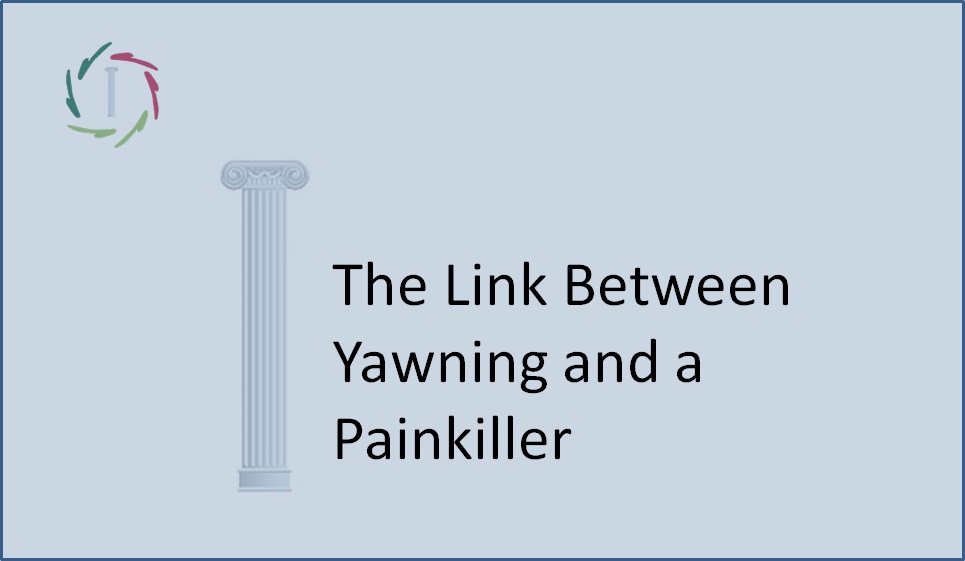
2 The Link Between Yawning and a Painkiller
The placebo effect is substantial AND we do not have to deceive the patient for it. Someone yawns. Seeing this, someone else gets an urge to yawn. Or someone (you perhaps?) reads about yawning and already feels an urge towards it. A well-known phenomenon. But what is the cause of it? There can only be Read the full article…

A Tale of Placebo: Arthritis of the Knee
Generally, people do not easily relate placebo to surgery. Think again. Bruce Moseley is an American orthopedic surgeon with a peculiar story to tell. In the early 1990s, he was widely regarded as an expert on knee arthroscopy. Receiving excellent feedback from many patients, he wanted to know how effective these operations were. This is Read the full article…